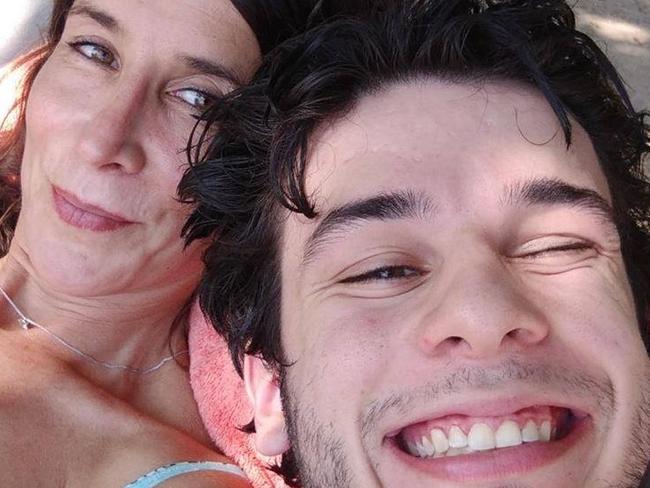Doctor issues warning on anaesthetic drug linked to death
A Newcastle doctor has issued warnings to anaesthetists about Sugammadex, a drug commonly used in public hospitals, after it was linked with the death of 21-year-old Lucas Peyret.
NSW
Don't miss out on the headlines from NSW. Followed categories will be added to My News.
- ‘Suspect’ drug linked to 21-year-old Sydney man’s death
- Calls for anaesthetic drug review after young man’s death
Some hospitals are warning their anaesthetic departments about the potential risk of anaphylaxis from the drug Sugammadex off the back of a Sunday Telegraph investigation into the death of 21-year-old Lucas Peyret.
In May, Mr Peyret went into cardiac arrest just minutes after receiving Sugammadex, a drug that reverses neuromuscular blocks used in general anaesthesia. He had an uneventful appendectomy prior to being given the drug.

Sugammadex was once restricted in its use for the urgent reversal of anaesthetic drugs only, or for use on obese patients, but in recent years it has had restrictions lifted in many hospitals.
Dr Rhys Thomas from the Anaesthesia Quality and Safety Fellow, Department of Anaesthesia John Hunter Hospital sent an email raising his concerns with staff last week.
“On the back of the recent expanded approval for Sugammadex, I thought I should share some potential safety issues of Sugammadex that I only recently became aware of, and that are worth keeping in mind as the use of Sugammadex increases,” he wrote.
In the email, which The Sunday Telegraph has obtained a copy of, Dr Thomas said Sugammadex had an increased risk of hypersensitivity in patients receiving higher doses of the drug, and the risk was a high as one in 10 patients.

“The risk of anaphylaxis (& hypersensitivity more broadly) appears to be dose dependent. It occurs more commonly in patients that received a 16mg/kg dose compared with those that received a 4mg/kg. The incidence of ‘hypersensitivity’ in patients receiving the higher dose is reported as being as high as 9.5%,” he said.
Dr Thomas also said there appeared to be cases of bronchospasm which is what Mr Peyret suffered before he went into cardiac arrest and died.
“There have also been multiple case-reports about severe, but short-lived laryngo- and/or bronchospasm shortly after Sugammadex administration, that do not appear to be hypersensitivity related per se,” he wrote.
The Sunday Telegraph understands Dr Thomas has issued the warning off the back of his own research. He declined an interview.
“Sugammadex is not a ‘give & go’ medication, and monitoring, in particular NMJ (neuromuscular junction) monitoring, should be maintained during its administration,” Dr Thomas said in the email.
MORE FROM JANE HANSEN:
Foetus ‘thrown out’ after miscarriage nightmare
‘Kids will look at her funny, but she is just like them’
The TGA database of adverse events for Sugammadex shows there have been 134 cases including 61 anaphylactic reactions, 14 cardiac arrest and one death.
Last week, senior anaesthetic specialist Dr Michael Levitt called for Sugammadex use to be reviewed.
Dr Levitt, who has witnessed two patients of his own go into respiratory arrest after administering Sugammadex, said with “the discounting (the cost) and the marketing by (pharmaceutical company) Merck Sharpe and Dohme, the use has expanded and in the public hospitals it is pretty much used by everyone.”

The NSW Therapeutic Advisory Group, NSWTAG, investigated the increase in NSW Hospitals in 2018 and found some had reported a 10-fold increase in use.
Dr Suzi Nou, ASA President, said the ASA is committed to ensuring the highest quality patient care.
“Anaesthetists make comprehensive risk assessments for every patient undergoing a procedure to ensure the most appropriate techniques, medications and equipment are selected to provide the safest possible anaesthesia. Many anaesthetic medications, including Sugammadex, can potentially have a low incidence of adverse reactions including life threatening anaphylaxis. This is taken into consideration along with a range of other factors when choosing particular anaesthetic techniques and medications in making clinical decisions for each patient,” Dr Nou said.
A spokesman for NSW Health said Dr Thomas’s email was not directed from above but “reflects good practice of clinicians to share information to promote safety and quality.
“The risk of severe adverse reactions from Sugammadex is low. However, as with all medicines, it is important that clinicians are aware of potential side effects,” the spokesman said.
